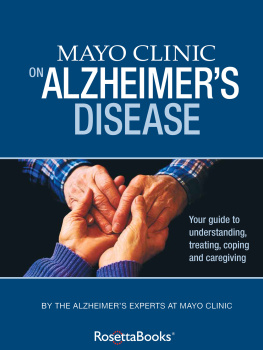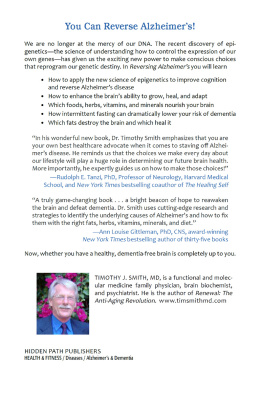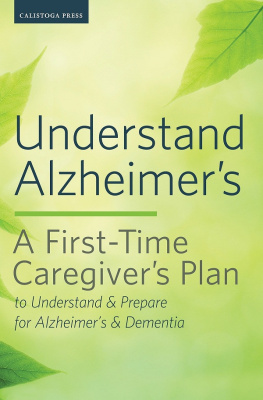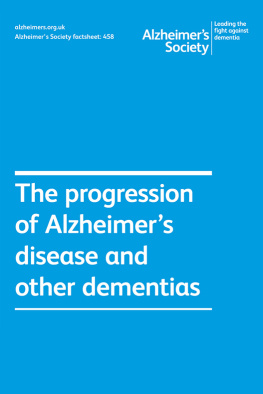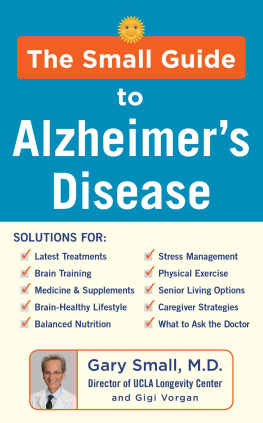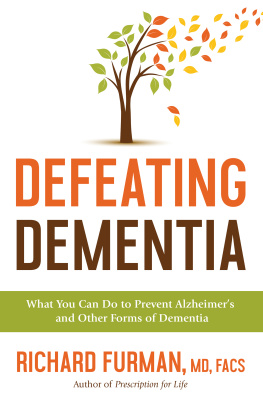THE MEMORY CLINIC
THE MEMORY CLINIC
Stories of Hope and Healing for Alzheimers Patients and Their Families
TIFFANY CHOW MD

VIKING
an imprint of Penguin Canada
Published by the Penguin Group
Penguin Group (Canada)
90 Eglinton Avenue East, Suite 700, Toronto, Ontario, Canada M4P 2Y3
Penguin Group (USA) Inc., 375 Hudson Street, New York, New York 10014, U.S.A.
Penguin Books Ltd, 80 Strand, London WC2R 0RL, England
Penguin Ireland, 25 St Stephens Green, Dublin 2, Ireland (a division of Penguin Books Ltd)
Penguin Group (Australia), 707 Collins Street, Melbourne, Victoria 3008, Australia (a division of Pearson Australia Group Pty Ltd)
Penguin Books India Pvt Ltd, 11 Community Centre, Panchsheel Park, New Delhi 110 017, India
Penguin Group (NZ), 67 Apollo Drive, Rosedale, Auckland 0632, New Zealand (a division of Pearson New Zealand Ltd)
Penguin Books (South Africa) (Pty) Ltd, 24 Sturdee Avenue, Rosebank, Johannesburg 2196, South Africa
Penguin Books Ltd, Registered Offices: 80 Strand, London WC2R 0RL, England
First published 2013
1 2 3 4 5 6 7 8 9 10 (RRD)
Copyright Tiffany Chow, 2013
All rights reserved. Without limiting the rights under copyright reserved above, no part of this publication may be reproduced, stored in or introduced into a retrieval system, or transmitted in any form or by any means (electronic, mechanical, photocopying, recording or otherwise), without the prior written permission of both the copyright owner and the above publisher of this book.
Manufactured in the U.S.A.
LIBRARY AND ARCHIVES CANADA CATALOGUING IN PUBLICATION
Chow, Tiffany
The memory clinic : stories of hope and healing for Alzheimers patients and their families / Tiffany Chow.
ISBN 978-0-670-06632-2
1. Alzheimers diseasePreventionPopular works.
2. Alzheimers diseaseTreatmentPopular works.
3. Alzheimers diseasePatientsCarePopular works.
I. Title.
RC523.2.C46 2013 616.831 C2012-906269-3
Visit the Penguin Canada website at www.penguin.ca
Special and corporate bulk purchase rates available; please see
www.penguin.ca/corporatesales or call 1-800-810-3104, ext. 2477.

Thanks go to all my teachers great and small,
only a few of whom are mentioned in this book.
Im grateful to have learned from so many people
who have shared their stories with me and
who have allowed me to become part of their stories.
Your dharma stitches the Hawaiian quilt of my life together.
CONTENTS
Introduction
LIFE LESSONS FROM THE MEMORY CLINIC
I am a senior scientist and behavioral neurologist at the Ross Memory Clinic at Baycrest in Toronto. I conduct research into dementia as well as treat patients, work which I find both intellectually challenging and spiritually engaging. My practice allows me to help patients and their families at emotionally vulnerable moments. Those experiences are often distressing, sometimes unexpectedly revealing, occasionally funny, and always meaningful. What I learn from these encounters, I parlay into how I manage my own brain-protection strategy.
I resemble many Boomers [in Toronto, we are called Zoomers] who fret not about whether well live a long life but rather about how well we will live out our life. I may have a little more concern about retiring into golden years than others do because of my family history of Alzheimers. Naturally, running a clinic that subspecializes in dementias that start before the age of 65 (early-onset) brings those worries to the forefront.
In 1995, while I was completing my training in neurology in San Diego, I received an unexpected telephone call from my grandfather in Hawaii. My grandmother Ah Quan had opted not to attend the afternoon funeral of a friend, and Grandpa had gone to pay his respects on their behalf. He returned later in the day to find Ah Quan collapsed on the living room floor. Later, in the emergency room, a CT scan revealed that there had been sudden bleeding into her brain, a hemorrhage. When I arrived at her bedside the next day, I could tell that she was not likely to be conscious enough to feel pain, but the swelling and intracranial trauma had not gone so far as to stop her innate breathing pattern. I did not have to lie to my mother to say that her mother was very deeply asleep. But Ah Quan never woke up. She spent the last month of her life asleep in a rented hospital bed in her living room.
After years of studying dementia through neuroimaging and clinical work, I have only recently recognized Ah Quans incident as one that is usually caused by Alzheimers disease. You dont hear about this form of Alzheimers very often, but one of the effects of Alzheimers damaging protein deposition in the brain is to weaken the arterial walls until a sudden, large, uncontrolled bleed (think of a collection of blood the size of a grapefruit) ends the persons life. It is called lobar hemorrhage due to amyloid angiopathy, but this stroke-like event does not strike the majority of Alzheimers patients.
During medical school I had gravitated toward the study of brain disorders that cause behavioral changes, which constitutes the gray zone between neurology and psychiatry. During my residency training in the specialty of neurology, I found a very soft spot in my heart for my elderly patients. Focusing my clinical work and research in the field of dementia brought my career to the rewarding intersection between my scientific interests and my personality type. When I realized, years after setting out on my career path, that Ah Quan had had a form of Alzheimers disease, it changed my arms-length relationship to dementia. Like a clich movie line, I thought, This time, its personal.
My family history grants me extra risk for dementia. This book is a summary of what Ive learned through my research and from my colleagues about the prevention and management of dementia: Even if we face a family history of Alzheimers disease and are therefore more vulnerable to dementia, we can prevent its onset or its progression. And its worth noting that everyone who lives past the age of 65 bears some risk for dementia, regardless of whether their parents or grandparents suffered from it.
Many people use the words dementia and Alzheimers disease interchangeably. This is not entirely incorrect, but the two are not synonymous. Dementia is a set of symptoms reported by the patient or family and of signs observable to a doctors eye, involving a loss of cognitive abilities severe enough to keep an individual from functioning independently. Alzheimers disease, on the other hand, is one of many possible causes of dementia and is the most common cause in people more than 65 years old. Dementia will occur in more people in more places around the world with each passing year, and many of us already have a friend or family member with dementia. Everyone I meet wants to know what to do to avoid it. While the prospect of brain failure strikes fear into the hearts of many, I have found a natural fit between my outlook on life and what I can offer as a neurologist, counselor, and researcher in this field. Although dementia is caused by some relentless brain disorders, there is meaningsometimes even joyto be found through the experience of it, and those moments provide inspiration to those of us who work with dementia every day.
In the early 1980s, the University of California created a program to recruit high school students with potential for academic success. They invited us to participate in selected undergraduate courses, and one really caught my eye: Medicine, Literature, and Ethics. In that course, I saw how each day in medicine could be wildly different from the last. I learned how patients and their families invite the physician to share in the most intimate aspects of their lives. The physician has the privilege of patients trusting that she or he can actually help. Despite our efforts, we cant always cure, but I was dazzled by the opportunity to make such a direct difference to people.
Next page

